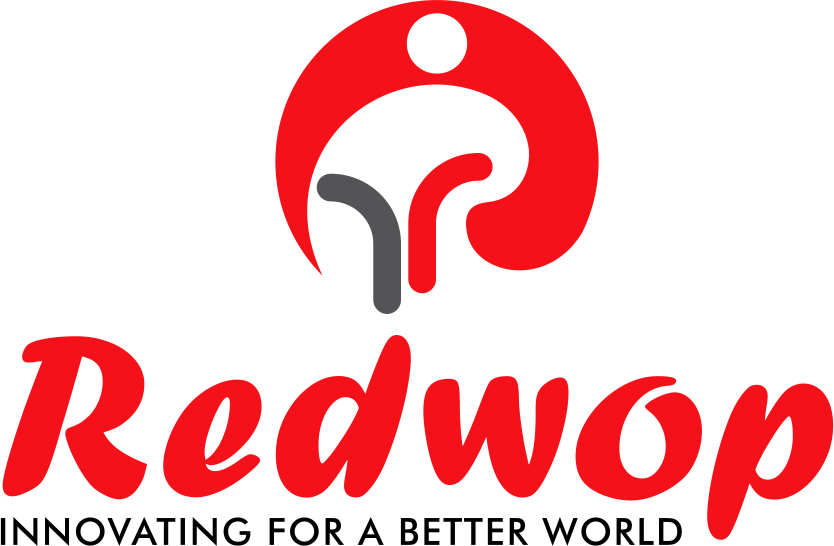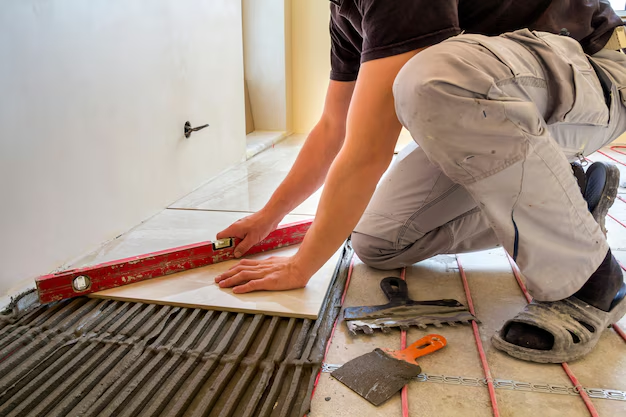How Smart City Projects in India Are Accelerating the Shift to Tile Adhesives
India’s Smart City Mission has redefined how modern infrastructure is planned and executed. With large-scale investments in housing, public amenities, metro systems, hospitals, and government buildings, the demand for efficient and high-performance construction materials is rising sharply. Among them, tile adhesive has emerged as a critical component—replacing traditional cement-sand mortar in many applications.
Unlike older methods, tile adhesives offer project-ready solutions with predictable results, lower failures, and higher speed—all essential in urban infrastructure.
Why Tile Adhesive Replaces Cement Mortar in Smart Projects
Traditional mortar may still be used in small-scale work, but it struggles to meet the needs of government or commercial-grade installations.
Key issues with cement mortar:
- Inconsistent mix quality on-site
- Poor bonding with low-absorption tiles
- Long curing time and risk of debonding
- Not compatible with large-format tiles or external cladding
Tile adhesives solve these issues with:
- Controlled, factory-made formulations
- Strong bond strength (C2TE/C2TES2 compliant)
- Quick-setting, better workability
- High water resistance and slip resistance
- Compatibility with ceramic, porcelain, stone, and mosaic tiles
These qualities make tile adhesives the preferred choice for engineers and project heads working on time-sensitive, technically complex jobs.
Use Cases: Where Smart Cities Use Tile Adhesives
In India’s Smart City plans, tile adhesives are used extensively in:
- Metro stations & terminals: High vibration and heavy foot traffic require flexible adhesives that don’t crack or shift.
- Public toilets & healthcare centers: Constant exposure to water needs adhesives with permanent water resistance.
- Government housing & schools: Fast-paced construction and consistent tile alignment are key.
- Urban landscaping, walkways & rooftop gardens: Outdoor use requires weatherproof and slip-resistant formulations.
Each of these applications demands a different type of adhesive depending on surface type, traffic load, and environment.
Redwop’s Tile Adhesive Range for Infrastructure-Grade Work
Redwop understands that public sector and Smart City projects demand not just speed, but consistency and long-term performance. As a leading tile adhesive manufacturer in India, Redwop provides purpose-built formulations for a wide range of infrastructure needs. That’s why its tile adhesive solutions are designed to meet a variety of use cases—from routine floor tiling in residential buildings to complex structural installations like metro stations.
TERATILE Silver
- Type: Polymer-modified cement-based adhesive
- Classification: C2TE
- Why use it: TERATILE Silver, easy-to-apply solution for regular interiors. Offers better bonding than traditional cement mortar at an economical cost.
- Use: Standard floor and wall tiling in low to moderate traffic areas.
- Application Areas: Indoor residential rooms, kitchen backsplashes, basic commercial spaces.
- Tile Types Supported: Ceramic, vitrified tiles.
- Substrate Compatibility: Cement mortar bed, plaster, concrete screeds.
TERATILE Prolix
- Type: High-performance cementitious adhesive.
- Classification: C2TES2
- Why use it: TERATILE Prolix is ideal when durability, working time, and resistance to water exposure are priorities.
- Use: For areas requiring better bonding and prolonged open time.
- Application Areas: Public toilets, corridors, exterior façades, and general wall cladding.
- Tile Types Supported: Vitrified, ceramic, low-absorption tiles.
- Substrate Compatibility: Concrete, cement boards, existing tiles.
TERATILE Prolix Extra
- Type: Flexible tile adhesive with advanced deformability.
- Why use it: Explore TERATILE Prolix Extra Redwop’s most robust cement-based adhesive, perfect for demanding zones with structural movement or thermal stress.
- Classification: C2TES2.
- Use: Critical projects requiring superior flexibility and strength.
- Application Areas: High-rise bathrooms, stone tile façades, submerged areas like swimming pools.
- Tile Types Supported: Natural stone, large-format vitrified tiles, porcelain.
- Substrate Compatibility: Waterproofed surfaces, concrete, precast panels.
TERATILE FlexoPlus
- Type: PU-based elastomeric tile adhesive.
- Why use it: TERATILE FlexoPlus. Offers extreme flexibility, bonding versatility, and weather resistance unmatched by cementitious products.
- Classification: Advanced polymer formula (no cement base).
- Use: For metal, glass, or vibration-prone surfaces where cement-based adhesives fail.
- Application Areas: Railway platforms, exterior staircases, rooftops, aluminum or steel
Surfaces. - Tile Types Supported: Glass mosaic, vitrified tiles, metal-backed composite tiles.
Substrate Compatibility: Steel, painted surfaces, waterproofing membranes
Performance Standards and Compliance in Government Projects
Government infrastructure projects typically follow IS and EN standards. Tile adhesives used in these projects must pass stringent testing related to adhesion strength, shear resistance, water absorption, and deformation.
Redwop tile adhesives are developed in line with these standards and are backed by strong technical documentation and support. This makes them suitable for tender-based work where material approvals and compliance are essential.
Also, contractors today are increasingly evaluated not just on price but on the durability and safety of their work. Using high-performance adhesives reduces the risk of tile failures and increases the credibility of the work.
Additional Advantages of Tile Adhesive in Public Projects
Beyond strength and speed, tile adhesives offer practical benefits:
- Cleaner application: No dust or mixing mess on-site
- Precise tile alignment: Reduces hollow spots and popping
- Wider material compatibility: Useful on drywall, cement boards, glass, and more
- Less thickness: No need for 20–25 mm mortar beds; 3–6 mm is sufficient
These details, though small, result in time savings, reduced errors, and smoother finishes across large surface areas.
Why Redwop Is Trusted in Infrastructure Projects
Redwop is not just a manufacturer—it provides product training, on-site support, and technical recommendations that align with real project conditions. From metro rail contractors to municipal housing developers, Redwop’s tile adhesives are used across India because:
- Products meet project-specific technical grades
- Supply chains are built for bulk and time-sensitive orders
- Field teams assist with surface prep, dosage, and correct usage
Choosing the right adhesive is not just a procurement decision; it’s part of construction risk management.
Conclusion
Smart City infrastructure is built to last—and tile adhesives are now a fundamental part of this growth. From water resistance to vibration control, they provide the durability, flexibility, and application speed that cement mortar simply can’t.
Redwop’s adhesive solutions are engineered for Indian weather, project conditions, and compliance demands. With the right tile adhesive, contractors can reduce rework, enhance tile life, and meet project timelines more confidently.
FAQs:
-
1. What is the best tile adhesive for government and Smart City projects in India?
Tile adhesives are preferred over cement mortar in Smart City and infrastructure projects because they offer stronger bonding, faster application, better water resistance, and long-term durability—essential for high-traffic and moisture-prone public areas.
-
2. Can tile adhesives be used for outdoor applications like terraces and balconies?
Yes, but not all tile adhesives are suitable for outdoor use. You need a waterproof tile adhesive with flexibility and weather resistance. Redwop FlexoPlus, a PU-based adhesive, is specifically designed for outdoor spaces exposed to rain, heat, and thermal expansion.
-
3. How is tile adhesive better than traditional cement-sand mix?
Tile adhesive offers stronger bonding, faster setting time, less wastage, and better water resistance compared to traditional cement-sand mixes. It also works well with larger tiles and smooth surfaces. Redwop tile adhesives are formulated to provide reliable performance across wall and floor applications.
-
4. Which tile adhesive should I use for stone or heavy tiles?
For natural stone, granite, or large-format tiles, a high-strength adhesive like Redwop TERATILE Prolix Extra is recommended. It prevents tile sagging, ensures full coverage, and offers excellent load-bearing capacity — critical for heavy tile installations
-
5. Are there specific tile adhesives for high-vibration areas like metros or airports?
Yes. Areas that experience regular vibration need flexible and high-performance adhesives. Redwop TERATILE FlexoPlus is ideal for such use cases due to its polyurethane base, flexibility, and resistance to movement and stress.



